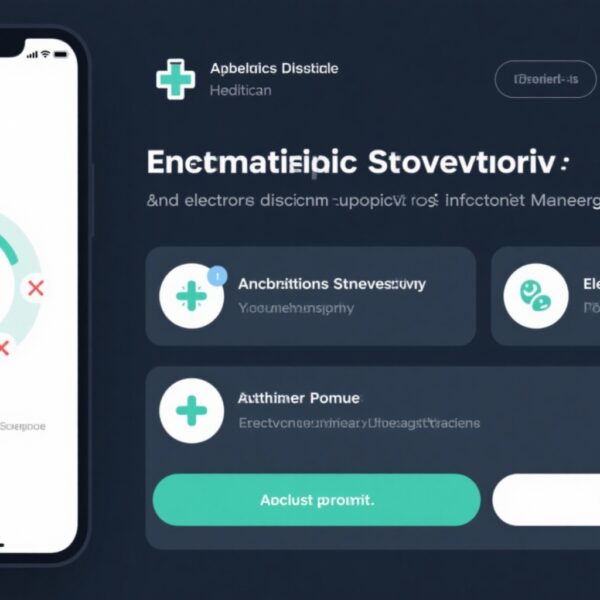Highlight
– Antenatal betamethasone administration in twins at 34–36 weeks gestation reduces severe neonatal respiratory morbidity by 36%.
– Continuous positive airway pressure use and transient tachypnea of the newborn were significantly lower in the treatment group.
– Neonatal hypoglycemia incidence increased modestly with betamethasone, but no differences in perinatal death or maternal infection were observed.
– Protective respiratory effects were most significant when delivery occurred between 12 hours and 7 days after steroid administration.
Study Background and Disease Burden
Preterm birth, particularly in late preterm (34 0/7 to 36 6/7 weeks) gestation, remains a significant contributor to neonatal morbidity and healthcare burden worldwide. Twin pregnancies inherently carry a higher risk of preterm delivery compared to singletons, predisposing neonates to respiratory and other complications.
Current obstetric guidelines support antenatal corticosteroid administration, such as betamethasone, for singleton pregnancies at risk of late preterm birth to enhance fetal lung maturity and reduce respiratory morbidity. However, evidence for corticosteroid use in twins during this gestational window has been insufficient, leaving clinicians uncertain about efficacy and safety in this group.
Given the increasing prevalence of twin pregnancies, partly due to assisted reproductive technologies, addressing this knowledge gap is crucial for optimizing neonatal outcomes.
Study Design
This rigorous multicenter randomized placebo-controlled clinical trial was conducted at eight university-affiliated hospitals in Korea between May 2018 and July 2024. Eligible participants included women with twin pregnancies at 34 weeks 0 days to 36 weeks 5 days gestation, identified as at risk for imminent late preterm delivery.
A total of 812 women were randomized (1:1 ratio) to receive either two doses of intramuscular betamethasone or placebo. The primary outcome was a composite of perinatal death within 72 hours or severe neonatal respiratory morbidity defined by standardized clinical criteria. Secondary (exploratory) outcomes included milder respiratory issues, additional neonatal complications, and maternal safety parameters.
Intention-to-treat analysis ensured robust evaluation of outcomes, maximizing reliability and clinical relevance.
Key Findings
Among 1620 neonates born to the study participants (818 betamethasone group; 802 placebo), there were no perinatal deaths in either arm, underscoring the relatively low mortality risk in late preterm twins with current obstetric care.
Severe respiratory morbidity occurred in 6.1% overall but was significantly reduced in the betamethasone group compared to placebo (4.8% vs. 7.5%; relative risk [RR], 0.64; 95% confidence interval [CI], 0.42–0.98). This 36% relative risk reduction represents a clinically meaningful benefit.
Secondary respiratory outcomes further supported efficacy: the need for continuous positive airway pressure (CPAP) for ≥2 hours was lower (RR 0.58; 95% CI, 0.35–0.95), and transient tachypnea of the newborn incidence decreased (RR 0.47; 95% CI, 0.25–0.89) in the treatment group.
Interestingly, the respiratory benefits were confined predominantly to neonates delivered between 12 hours and less than 7 days after the initial betamethasone dose, highlighting the time-sensitive pharmacodynamic effect.
However, antenatal betamethasone was associated with an increased risk of neonatal hypoglycemia (15.6% vs. 11.7%; RR, 1.33; 95% CI, 1.01–1.75), a recognized corticosteroid side effect warranting monitoring but did not increase neonatal sepsis or maternal chorioamnionitis risks.
Expert Commentary
This landmark study provides the first high-quality evidence validating betamethasone administration for respiratory protection in late preterm twin pregnancies. Prior recommendations extrapolated data primarily from singleton pregnancies, leaving an evidence gap that this trial fills.
The clear respiratory benefit with an acceptable safety profile supports integrating corticosteroid treatment into clinical protocols for twins, particularly when delivery is anticipated within a week.
Notably, the increase in neonatal hypoglycemia aligns with known corticosteroid effects and merits proactive neonatal glucose monitoring to mitigate potential adverse outcomes.
Limitations include the study’s geographic concentration in Korea, which may affect generalizability. Furthermore, longer-term neurodevelopmental outcomes were not assessed, an important area for future research.
Biologically, the enhanced lung maturation induced by glucocorticoids facilitates surfactant production and alveolar development, critical in overcoming pulmonary immaturity characteristic of late preterm neonates, particularly vulnerable in twin gestations often complicated by shared placental factors.
Conclusion
This robust randomized clinical trial demonstrates that antenatal betamethasone administration in twin pregnancies at risk of late preterm delivery significantly reduces severe neonatal respiratory morbidity. These findings fill a critical evidence void, furnishing clinicians with data to guide management decisions in this high-risk population.
While neonatal hypoglycemia risk rises modestly, the overall benefit-risk balance favors corticosteroid use with appropriate perinatal monitoring. Integration of this evidence into obstetric guidelines may optimize neonatal respiratory outcomes and reduce late preterm morbidity burdens.
Further studies are needed to explore long-term infant outcomes and applicability across diverse populations.
References
Lee SM, Park HS, Choi SR, Lee J, Kim HJ, Park JY, et al. Antenatal Corticosteroid in Twin-Pregnant Women at Risk of Late Preterm Delivery: A Randomized Clinical Trial. JAMA Pediatr. 2025 Sep 22:e253284. doi: 10.1001/jamapediatrics.2025.3284. Epub ahead of print. PMID: 40982289; PMCID: PMC12455487.
Gyamfi-Bannerman C, Thom EA, Blackwell SC, et al. Antenatal Betamethasone for Women at Risk for Late Preterm Delivery. N Engl J Med. 2016;374(14):1311-1320. doi:10.1056/NEJMoa1506481
Roberts D, Dalziel S. Antenatal corticosteroids for accelerating fetal lung maturation for women at risk of preterm birth. Cochrane Database Syst Rev. 2006;(3):CD004454. doi:10.1002/14651858.CD004454.pub2
Trial Registration
ClinicalTrials.gov Identifier: NCT03547791.



